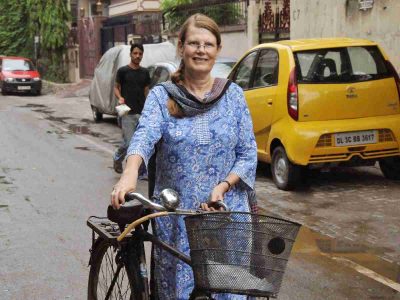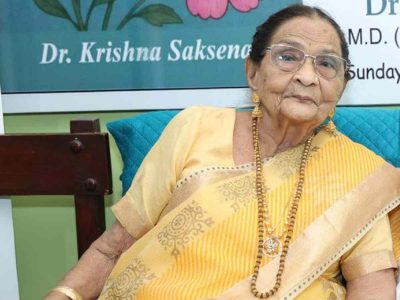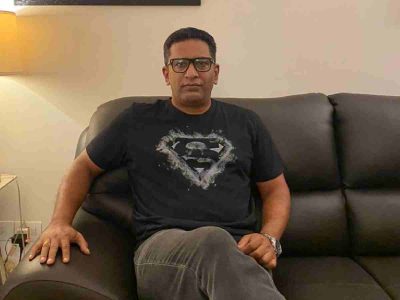With instruments and props scattered around in his dining space, and an empty hall with a couple of beautifully carved chairs and a sofa set where sits a playwright-actor-and-director in his mid-50s waiting for his students, actors and colleagues.
While Sayeed Alam ensures that everything is ready for the rehearsals, people are busy booking their tickets for one of the most famous plays of our times – Ghalib in New Delhi. About to be staged this Sunday at the LTG Auditorium at Copernicus Marg, Ghalib in New Delhi along with Lal Qile Ka Aakhri Mushaira has been synonymous with the names of Pierrot’s Troupe and Dr M Sayeed Alam.
Born on 31 December 1967, Alam started his theatrical journey at the age of seven with a school play, which was in fact a Tameesli Mushaira (where actors enact a symposium) in Bahraich. He joined the Pierrot’s Troupe in 1994 while pursuing his PhD in International Politics from Aligarh Muslim University. He started his career with the adaptation of Letter to a Child Never Born by Oriana Fallaci, which was in fact adopted in Urdu in his own words.
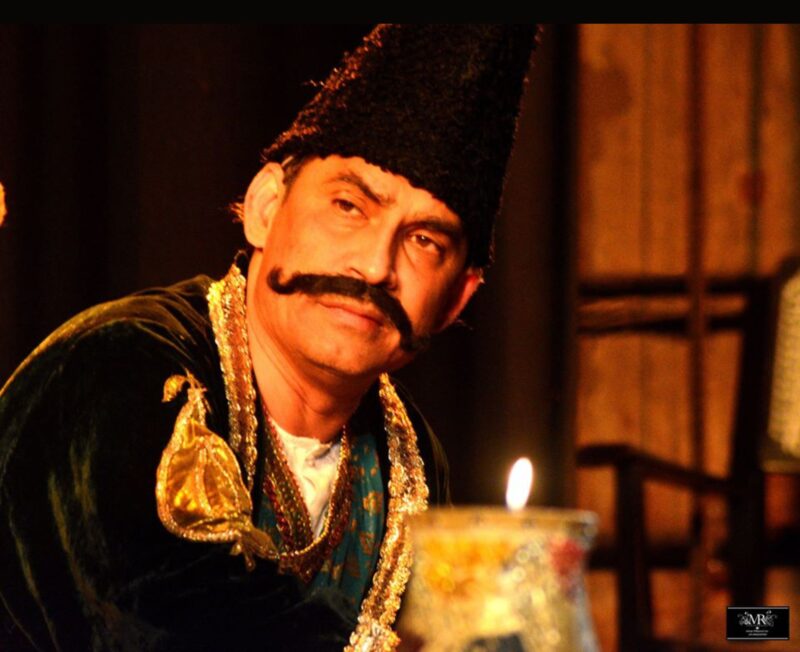
Theatre and Aligarh
“I barely did any theatre in Aligarh…close to none actually. However, I would have also not been a playwright if not for Aligarh. Kennedy Hall taught me all that I needed to know in order to get started as a playwright”, says Alam as he looked out into the distance, lost in nostalgia.
His eyes fixated on the tiny droplets of rain that had settled on his window. A drop travelled down the window and his gaze followed it as he travelled further down the memory lane. He continues, “AMU is a university littered with theatrics. There is so much drama in everything. Even the mundane act of having your everyday tea at the dhaba somehow involved anecdotes of Mushtaq Yusufi. This was back in the eighties. Today, you do not associate this degree of culture interwoven in everyday life with smaller towns.”
Alam looked away from the window for a second. His eyes lit up at the sign of confusion at Yusufi’s name. “Yusufi is Aligarh’s secret. Not many people know of him outside of Aligarh. He is a master satirist…truly incredible at what he did. He died in Karachi, I believe. I used to repeat his jokes in Delhi and people were so unaware of him, that they thought those jokes were mine. Everyone was so impressed with my sense of humour”, he says as he bursts into laughter.
“In many ways, Yusufi has been my teacher. He and RK Laxman have deeply impacted my work. It is very obvious too, I suppose”, he adds.
Pierrot’s to Parrot’s Troupe
Founded in 1989 by Ashok Puran, a master of European languages, Pierrot’s Troupe was basically a French term where the ‘t’ in Pierrot’s is silent. “It has a weird spelling, and thus, wherever we went for the registrations and shows, we were scolded for not knowing the correct name of our own group”, he smirked.
“We were told by the others that it’s Parrot’s Troop, not Pierrot’s. That’s why I say that it is the most pronounced and the least pronounceable theatre group”, he says.
Escape: theatre and a job
Belonging to a middle-class background, Sayeed took up a job in the early nineties at Iranian News Agency (The Islamic Republic News Agency). “There was a culture of mysticism and an understanding of aesthetics among my colleagues. They liked that one of their employees was a theatre artist. In fact, they were a part of the regular audience in my shows”, he states.
Alam, lamenting the change of time, states that these are the days when a lot of the students and theatre artists are afraid of telling their employers that they are involved in theatre. “My colleagues ensured that I was able to wind up my work before 5 in the evening so that I can go for the rehearsals”, he says. Eventually, he left his job to pursue theatre and is now a full-time theatre artist.
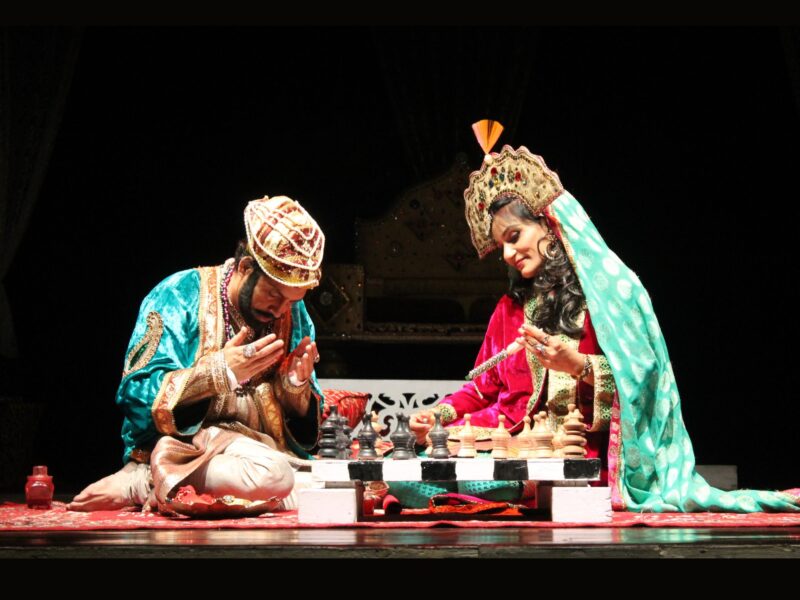
Remembering Tom Alter
“I am blessed to have worked with one of the tallest figures in the worlds of cinema and stage”, says Alam.
The rain stopped to a halt, and a ray of sunlight made its way into the room after what seemed like forever. The doorbell rang, and two students entered the scene for their scheduled rehearsals. “Tom Saheb was a constant at Pierrot’s stage. He was tantamount to Mirza Ghalib in Ghalib, Maulana Abul Kalam Azad in Maulana Azad and Bahadur Shah Zafar in Sons of Babur. He was irreplaceable”, Alam says.
Narrating a scene from Ghalib, Alam states that the play was being staged in a house-full auditorium. “Tom Saheb was playing the Old Mirza Ghalib, narrating his life incidents to his student Altaf Hussain Hali, while a younger Ghalib was seen at the centre standing in front of the British Officer Colonel Burn, where he asked,
‘Ghalib, are you a Muslim?’
‘Half’, he replied.
‘I am not a drunkard but I often eat pork’, stated the younger Ghalib as the result of a slip of tongue.
Cut to the scene where Tom Saheb was dictating the scene to Hali, he improvised on the spot and said, ‘I was so nervous in front of that British officer that I mixed up my answers’.”
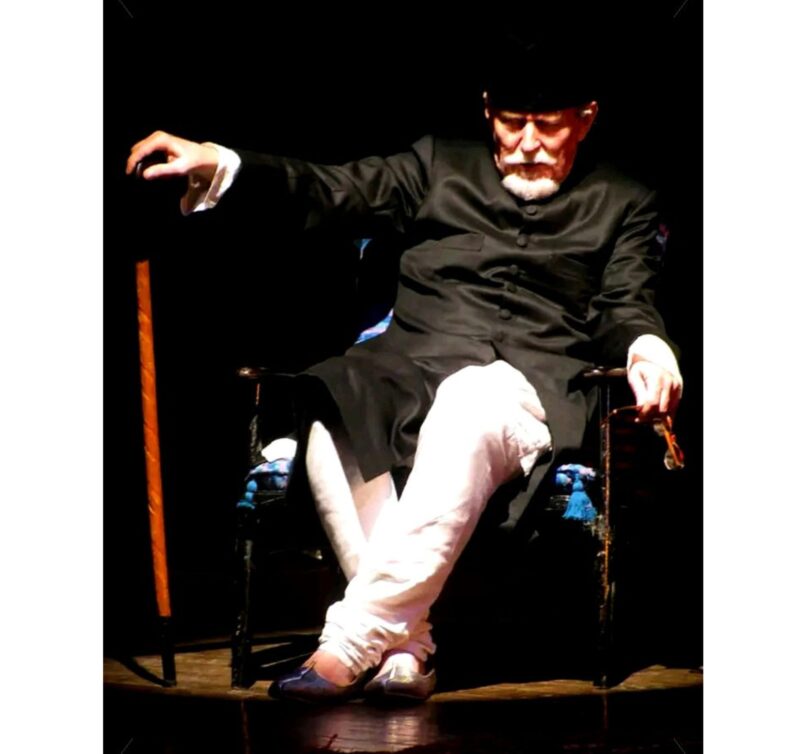
All the world’s a stage – and the show must go on
In Alam’s opinion, theatre is liberating for an artist. It allows you to simultaneously register dissent, entertain and carry on a legacy. He remembered the time when he staged a play in the Indian Parliament in front of the former Prime Minister Dr Manmohan Singh, which was eventually a political criticism of the then ruling party.
He believes that theatre passes on the legacy of generation from one to the next generation, as he cites the example of Mahabharata and Ramayana, which continues to be staged for thousands of years. “Theatre protects a culture and its literature, and simultaneously makes it accessible to the masses”, he comments.
Alam believes that it is a must to protect theatre from turning into propaganda, no matter whatever it takes.
For more stories that cover the ongoings of Delhi NCR, follow us on:
Instagram: instagram.com/thepatriot_in/
Twitter: twitter.com/Patriot_Delhi
Facebook: facebook.com/Thepatriotnewsindia


